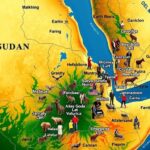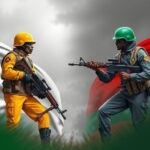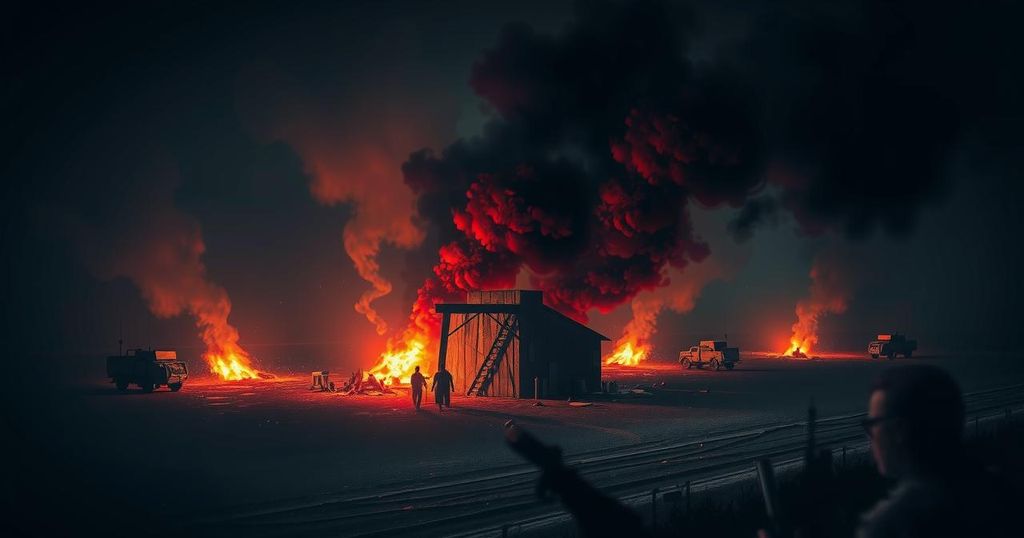Myanmar’s Ongoing Crisis: A Struggle for Stability Amidst Military Despotism
Myanmar’s civil conflict escalated after the 2021 military coup, with over 3 million displaced. The military junta, led by Senior General Min Aung Hlaing, struggles to retain control amidst strong armed resistance and discontent, especially among ethnic groups. The Rohingya population remains critically affected, emphasizing the need for international support. Current peace initiatives like ASEAN’s Five-Point Consensus require reconsideration to address Myanmar’s complex realities and foster conditions for lasting stability.
Myanmar continues to grapple with a deepening civil war, exacerbated by the military junta’s persistent hostility and refusal to relinquish control. The February 2021 coup that ousted Aung San Suu Kyi has plunged the 56 million-strong nation into acute political, social, and ethnic turmoil, with thousands killed and millions displaced. The junta’s iron grip persists despite growing armed resistance from various factions, complicating any prospects for peace. Historically marked by military rule and ethnic strife since its independence from Britain in 1948, the country has seen the emergence of several militias with divergent objectives. Following decades of oppressive military governance initiated by General Ne Win in 1962, the political landscape evolved when Suu Kyi’s National League for Democracy (NLD) was founded amidst public unrest. Previously a prominent advocate for democracy and human rights, Suu Kyi’s image drastically diminished following the military’s 2017 ethnic cleansing of the Rohingya people. Despite her significant historical stature, her ability to unite ethnic factions has significantly eroded amid intensifying conflicts. As reported by the Special Advisory Council for Myanmar (SAC-M), the military’s dominion has dwindled, with their control extending to only 14% of the nation’s territory encompassing 33% of the population. The ASEAN-led initiative known as the “Five-Point Consensus” proposed a peaceful resolution but was met with the junta’s obstinacy, highlighting Myanmar’s disconnect from regional prosperity objectives. Armed factions like the Three Brotherhood Alliance have capitalized on the junta’s weaknesses, capturing considerable territory and challenging the regime’s narrative. Compounding the junta’s challenges, internal divisions exacerbate the conflict. While the junta defends its position militarily, its morale remains precarious, and the legitimacy required for governance is contested. Concurrently, the Rohingya crisis, characterized by significant displacement, remains unresolved. More than one million Rohingya reside in appalling conditions in Bangladesh, with a potential return necessitating international support for their safety. The ongoing efforts by the United Nations to facilitate a resolution, while commendable, fail to address the shifting dynamics of Myanmar’s internal conflict. The need for inclusive dialogues with anti-junta groups representing diverse ethnic interests is urgent, as their demands for autonomy could pave the way for long-lasting peace. Historically, ASEAN’s engagement strategies require revisiting to reflect the realities on the ground as the junta’s isolation increasingly becomes untenable. The urgency for a structured and supportive approach to the Rohingya repatriation and broader political stability remains paramount for Myanmar’s resurgence.
Myanmar has a troubled history marked by military rule and ethnic strife, dating back to its independence from Britain in 1948. The most recent upheaval began with the military coup in February 2021, which led to formidable civil unrest and a significant increase in armed resistance. The junta, often referred to as the Tatmadaw, has responded to dissent with violence, further deepening the country’s socio-political and economic crisis. Previous democratic movements, particularly led by Aung San Suu Kyi, have been undermined by military aggression, culminating in intensified ethnic conflicts, especially concerning the Rohingya population, which faces severe persecution. The current landscape reflects a stagnation in peace initiatives, particularly those proposed by regional bodies like ASEAN, suggesting an urgent need for a revised strategy to address the complex reality of the ongoing civil war.
In conclusion, Myanmar’s ongoing crisis underscores the deep-rooted challenges facing the nation, driven by military despotism, ethnic conflict, and social disorder. The junta’s refusal to engage constructively with disparate ethnic factions, coupled with its repression, significantly impedes prospects for peace. International intervention and revised strategies are vital for addressing the Rohingya plight and fostering an inclusive dialogue for national reconciliation. A sustainable resolution requires adaptation to the evolving dynamics within Myanmar, demanding collaboration from all stakeholders.
Original Source: www.dailysabah.com






Post Comment